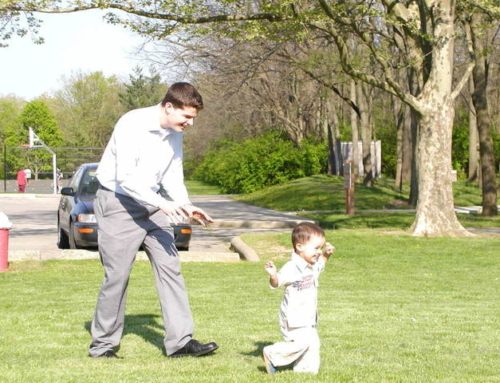Only a few short weeks until you and your children create new plans for every day!
Only a few short weeks until camps, lessons, trips, and grand adventures begin!
Or is it?
For some, summer is a time of unscheduled days, filled with leisurely hours of “doing nothing.”
Only recently have scientists measured what really is happening when we are “doing nothing” in front of the television or a video game. It is clear that we are really doing “something” when watching and playing with electronics. Perhaps it is time to plan just how much of “nothing” will be done this summer!
While we have studied these effects for many years, now we can physically measure what, why, and how people interact with electronic media. Scientific American (February, 2002) reported that all studies show people quickly experience feelings of relaxation and passivity when watching media. It is thought that the media allows people to stop focusing on their problems by watching or doing something else. Brain waves (EEGs) show similar changes in patterns. The rapid change of focus allows people to immediately associate the feeling of relaxation with watching TV or playing computer games – fostering our decision to use media “to relax.” Those who over-watch/play report intentionally using the activity to distract themselves or avoid unpleasant events. After a time, the TV/game becomes both a source of pleasure and way to avoid the negative. In this way it meets any and all needs.
Unfortunately, once finished with games/TV programs, people no longer feel relaxed. Instead, they remain passive. less alert, and their prior mood returns. Such an experience may be likened to withdrawal symptoms. The negative feelings which can return after turning off electronics can promote continued viewing – in order to avoid the negative after effects. This makes it even more difficult to turn off the TV when a show ends or the console when the video game/level is over. Frequent users report high levels of anxiety and unhappiness when there is no structured event from them, prompting higher vulnerability to engage in continued use of electronic media. In contrast, after playing sports or pursuing a hobby, people report increases in mood and longer-lasting alertness and mental activity. again, we find that a pleasurable or “fun” even promotes more participation in the fun.
TV, videos, and web programs may also be designed to engage our “orienting response.” This response is present early in life, with our beings responding to patterns of movement or changes in our visual fields. Obviously, it is difficult for us to disengage from watching many types of visual presentations. Think about how frequently scenes shift in the most attention-grabbing presentations. It is probably most difficult to turn off media when scenes change frequently and the content is vivid.
A new, attractive facet has been incorporated into computer games and reality shows in particular. There is a balance of challenge and success. This prompts prolonged activity and watching! Feelings of mastery when a goal is attain also reward continued use (or watching to follow our chosen or favorite “player” or “character” in a reality show). Web use has also been found to capitalized upon our orienting response through placement of visual links and other items which keep us engaged.
In all media use, it does appear that exposure to violent content can be associated with higher levels of aggression in the user. aggressive thought can also be increased in a person’s awareness through watching such content on a frequent basis. The physical changes which result are found to raise physiological arousal.
Recent research has found that when parents monitor and speak negatively about violent media, children place less importance on the programming. However, when parents say nothing about the content, children have reported a higher than normal aggressive attitudes. Reality programs have been found to have a high level of aggression within the relationships – is this a good model of social skills for children and teens?
The need for parents to plan a child’s use of electronic pastimes is clearer than ever. As summer approaches, we can develop a more involved, conscious, and critical approach to the content of everyone’s leisure hours – and teach our children to do this for themselves.
Time Management Suggestions for Summer (and beyond?)
Set
a limit of time to be used each day. Remember, frequent users find it difficult to disconnect and then are anxious or unhappy when no activity is scheduled. Provide alternative, fun activities!
Preview
the schedules and select exactly which programs and games will be watched/used each day. Do not allow advertisement or continuously running programming to “snag” you into watching something not chosen in advance.
Provide
more active high-interest activities. Try board games, sports events, hobbies, models, building, creative expression, science experiments, or arts/crafts – all of which result in a measurable or useful accomplishment.
Pair
the content of the leisure activity with the topics presented in selected TV/video programs. By using the same materials, children’s knowledge can be broadened.
Consider
having a day’s “vacation” from electronics each week. Once the reinforcement cycle is broken, other activities can be experienced and become rewarding in and of themselves.
Use
alternative sources to gain the same information: books, newspapers, radio news programs, magazines, and encyclopedias.






